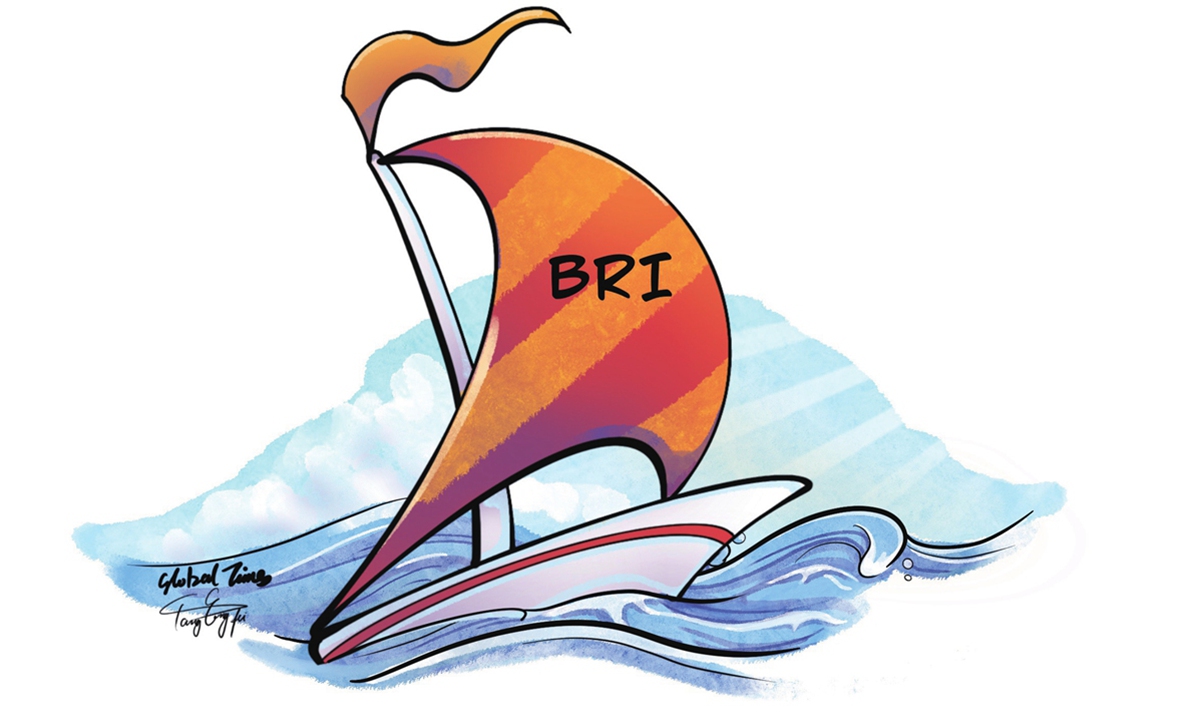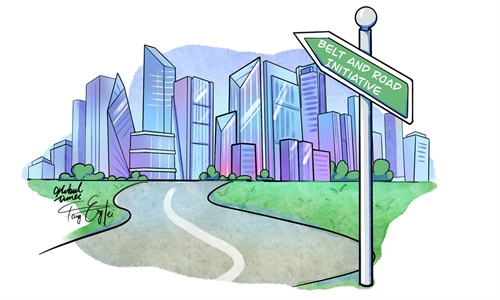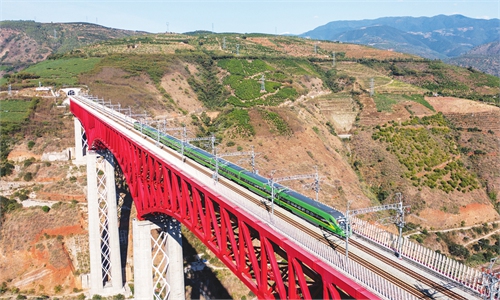
Illustration: Tang Tengfei/GT
The world seems to have been set ablaze by the flames of war that have broken out in the Middle East.The re-emergence of the Israeli-Palestinian conflict demonstrates that the world is still in a transitional phase between the old and new epochs and has not yet moved beyond the post-World War II "order."
The ashes left behind by the old Cold War are beginning to rekindle, and the footsteps of the "new cold war" are clearly audible. The conflict in the Middle East has already reopened old wounds and may lead to larger-scale religious, ethnic, ideological and geopolitical disputes.
As peace and stability become more precious, what is the US doing as the prescriber and dominator of the post-war order? And what can it do for peace?
Despite the deployment of two carrier strike groups by the US, it appears unlikely that the nation, often referred to as the "world's policeman," will succeed in extinguishing the turmoil in the Middle East. Washington has even gone so far as to avoid saying terms like "de-escalation/ceasefire," "end to violence/bloodshed," and "restoring calm." According to the US media, the US State Department has asked diplomats not to use these terms. Additionally, the legislators, are eager to expedite the restoration of Congress' normal functioning to promptly facilitate the provision of additional weaponry to the "front line" of global conflicts.
Neither the US nor Europe can extricate themselves from a conflict that has deep historical roots in their expansion in the world. They face the resulting deep divisions in their societies and public opinion.
Most countries around the globe, especially in the South, in general, need stability and development and more solid forces to support peace.
Looking ahead from this perspective, the rise of China and the China-proposed Belt and Road Initiative are clearly of extraordinary significance. The Third Belt and Road Summit Forum on International Cooperation to be held in Beijing will give the world a clearer understanding of peaceful development.
As a force for joint development and an anchor of stability for global peace, China shoulders the responsibilities of an emerging power in this era of transition between the old and the new.
China does not have the historical burden of Western colonist powers' expansion. China remains impartial, refrains from fueling the fire, maintains neutrality and strives for peace. It encourages conflicting parties to escape the cycle of confrontation and conflict. This stance aligns with China's choice and is consistent with the universal concept of human rights.
Outsiders primarily view the Belt and Road through an economic lens. However, China's proposal of this initiative is not solely due to its financial strength but also because China has consistently pursued stable domestic growth and remained committed to the path of peaceful development. Only when all three are added together can it give the world's peaceful development a more decisive impetus. Even if the world is in chaos, China has the strength to maintain stability.
China's domestic political and social stability starkly contrasts the US' domestic political chaos, social division and polarization of public sentiment.
People can explain the Belt and Road from a geopolitical perspective, discussing Chinese manufacturing's global reach and China's domestic and foreign affairs. However, one core aspect is China's exportation of development and peace, resulting in a win-win situation.
When Washington does not mention the term "ceasefire" and tries to impose its own political choices on other nations, can it still be seen as the power prioritizing global peace and development?
The world cannot always dance to the tune of the US. When more countries view the Belt and Road Initiative (BRI) through the lens of the US perspective and take into account the conflict between Russia and Ukraine, as well as the Israeli-Palestinian conflict, it is expected that more countries will align their choices with the development trend of the new order.


